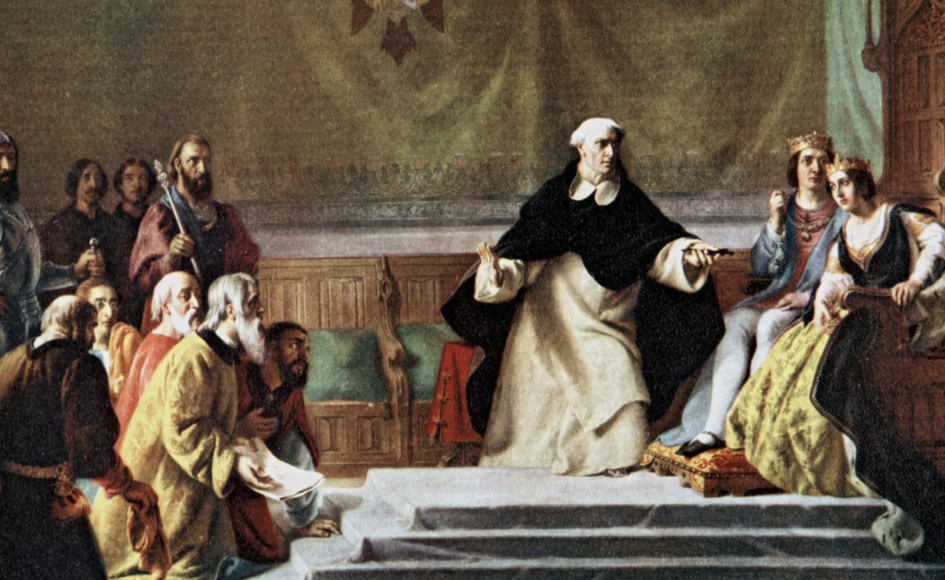The Inquisition, a term that conjures images of religious persecution and intolerance, was a complex institution that spanned centuries and continents. Often associated with the Catholic Church, the Inquisition was not chiefly the work of ecclesiastical authorities. State governments played a significant role in its establishment and operation. This article delves into the intricate relationship between state governments and the Inquisition, shedding light on how political interests converged with religious fervor.
The Birth of the Inquisition: A Marriage of Church and State
The Inquisition, in its various forms, emerged during the Middle Ages as a response to the perceived threat of heresy. While the Church was the primary driving force, state governments in Europe, particularly in Spain, lent their support. In 1478, the Spanish Crown established the Spanish Inquisition, known for its ruthless pursuit of religious conformity. It was not merely an ecclesiastical affair; instead, it became an extension of state authority and may be considered an unintended consequence of the combination of Church and state, in conflict with the Augustine’s Two Cities doctrine.
Political and Religious Symbiosis
The Spanish Inquisition is a prominent example of how the Church and state worked in tandem. Under King Ferdinand II of Aragon and Queen Isabella I of Castile, the Spanish Inquisition was given royal approval. This partnership was not solely motivated by religious zeal but also by political considerations. Spain had recently been unified, and the monarchs sought to centralize power. By backing the Inquisition, they could not only eliminate religious dissent but also exert control over the nobility and local institutions.
In this case, the inquisition wasn’t the state doing the Church’s bidding but the state doing its own bidding with the excuse of doing it for the good of the Church.
Instrument of Social Control
State governments saw the Inquisition as a means to maintain social order. In addition to targeting heresy, it pursued blasphemy, witchcraft, and other perceived threats to the prevailing religious and social norms. By doing so, it aimed to suppress any form of dissent that could destabilize the state. Fear of persecution acted as a deterrent, discouraging individuals from questioning religious or political authority.
Expanding the Inquisition: Colonial Endeavors
As European powers expanded their empires overseas, the Inquisition followed suit. In the Spanish colonies of the Americas, for instance, the Inquisition was introduced to ensure religious orthodoxy among both indigenous populations and settlers. This expansion reinforced the idea that the Inquisition was not solely a religious institution but an arm of state authority used to maintain control in far-flung territories.
In 1550-51, Franciscan Friar and Bishop of Chiapas Bartolomé de las Casas argued for the rights of the American Indians in the Valladolid debate against Juan Ginés de Sepúlveda. While the Valladolid debate did not result in an immediate policy change, Las Casas’s efforts influenced the papal bull Sublimis Deus of 1537, which established the status of the Indians as rational beings. More significantly, Las Casas was instrumental in the passage of the New Laws (the Laws of the Indies) of 1542, which were designed to end the encomienda system, which had granted granted Spanish conquistadors and other colonial officials the right to control indigenous peoples and their lands.
Challenges and Decline
Over time, the Inquisition faced challenges from various quarters, including religious reform movements, Enlightenment ideals, and changing political landscapes. State governments, too, began to question the wisdom of such a powerful and often oppressive institution. As a result, the Inquisition gradually lost its influence and was eventually disbanded in many places.
Conclusion
The Inquisition stands as a testament to the complex interplay between religion and state power. While it was driven by religious concerns, state governments were instrumental in its establishment and operation. The Inquisition served as a tool for political centralization, social control, and the suppression of dissent. Its history is a reminder of the potential dangers when religious and political authority become closely intertwined. Ultimately, the decline of the Inquisition signaled a shift towards greater religious tolerance and the separation of church and state, marking a turning point in the history of religious freedom and governance.
 The Libertarian Catholic
The Libertarian Catholic
















